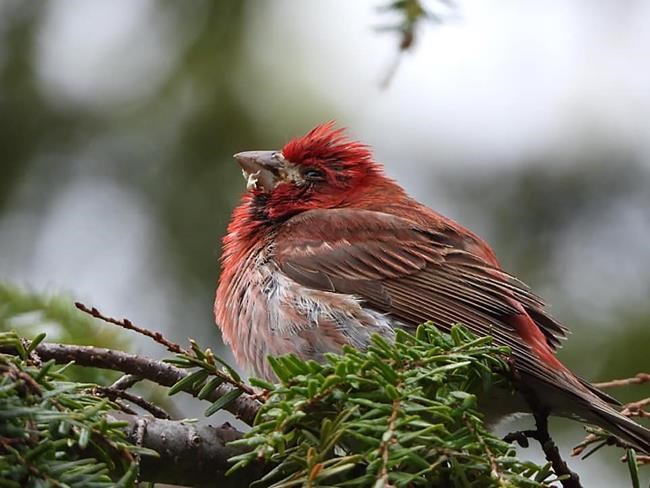Remove bird feeders to battle spread of deadly parasite, bird society urges
Advertisement
Read this article for free:
or
Already have an account? Log in here »
To continue reading, please subscribe:
Monthly Digital Subscription
$0 for the first 4 weeks*
- Enjoy unlimited reading on winnipegfreepress.com
- Read the E-Edition, our digital replica newspaper
- Access News Break, our award-winning app
- Play interactive puzzles
*No charge for 4 weeks then price increases to the regular rate of $19.00 plus GST every four weeks. Offer available to new and qualified returning subscribers only. Cancel any time.
Monthly Digital Subscription
$4.75/week*
- Enjoy unlimited reading on winnipegfreepress.com
- Read the E-Edition, our digital replica newspaper
- Access News Break, our award-winning app
- Play interactive puzzles
*Billed as $19 plus GST every four weeks. Cancel any time.
To continue reading, please subscribe:
Add Free Press access to your Brandon Sun subscription for only an additional
$1 for the first 4 weeks*
*Your next subscription payment will increase by $1.00 and you will be charged $16.99 plus GST for four weeks. After four weeks, your payment will increase to $23.99 plus GST every four weeks.
Read unlimited articles for free today:
or
Already have an account? Log in here »
Hey there, time traveller!
This article was published 17/06/2019 (2366 days ago), so information in it may no longer be current.
HALIFAX – Nova Scotians are being asked to remove bird feeders and close up bird baths as a fatal disease spread by damp, human-provided seed is killing purple finches.
David Currie, president of the Nova Scotia Bird Society, says the cases of trichomonosis around the province are an annual occurrence, but they seem to have arrived quickly and intensely during a particularly cool and wet spring.
The fatal disease is caused by a tiny parasite being transmitted from bird to bird through moist bird seed, wet areas and in bird baths.

Currie says there have been seven reports of the disease around the province, prompting his group to suggest people follow the advice of the Canadian Wildlife Health Cooperative and remove the feeders and bird baths.
The parasite causes inflammation of the bird’s glands and windpipes, leading to lethargy and making it difficult for the birds to breath.
Currie said it primarily harms purple finches, which aren’t currently endangered, but the fatal illness occasionally spreads into other seed-eating birds.

